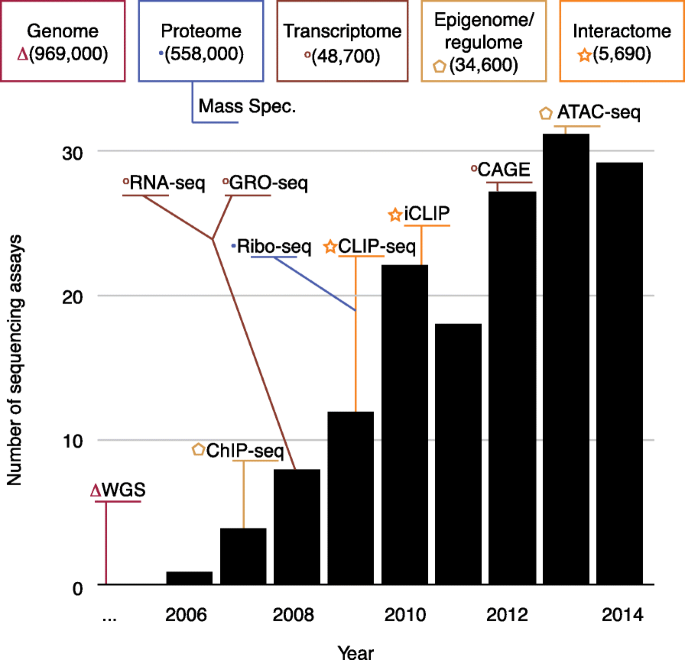
Unraveling Potential: Genomic Data Analytics Insights
Genomic data analytics has become a cornerstone in the field of genetics, offering profound insights into the intricacies of our genetic code. From understanding diseases to personalized medicine, the impact of genomic data analytics is far-reaching, unraveling the potential encoded in our DNA.
Decoding the Genome: Foundation of Genomic Data Analytics
At the heart of genomic data analytics is the decoding of the human genome. The Human Genome Project paved the way for mapping the entire human DNA sequence, providing researchers and scientists with a vast repository of genetic information. Genomic data analytics processes this wealth of data to identify genes, understand their functions, and explore the variations that contribute to individual differences.
Precision Medicine Advancements through Genomic Data Analytics
Genomic data analytics plays a pivotal role in advancing precision medicine. By analyzing an individual’s genomic data, healthcare professionals can tailor treatments based on the unique genetic makeup of a patient. This personalized approach enhances treatment efficacy, reduces adverse reactions, and opens new frontiers in treating diseases at the molecular level.
Uncovering Genetic Markers for Disease Identification
One of the significant contributions of genomic data analytics is in identifying genetic markers associated with various diseases. Through large-scale genomic studies, researchers can pinpoint specific genetic variations linked to conditions such as cancer, diabetes, and cardiovascular diseases. This knowledge is instrumental in early detection, risk assessment, and the development of targeted therapies.
Genomic Data Analytics in Drug Discovery
The pharmaceutical industry has embraced genomic data analytics to revolutionize drug discovery. By understanding the genetic basis of diseases, researchers can identify potential drug targets more efficiently. This accelerates the drug development process, reduces costs, and increases the likelihood of developing therapies that align with the genetic characteristics of the targeted population.
Integration of Genomic Data Analytics in Healthcare Systems
As genomic data analytics continues to evolve, its integration into healthcare systems is becoming more prevalent. Electronic health records now include genomic information, providing a comprehensive view of a patient’s health. This integration allows healthcare providers to make informed decisions, predict potential health risks, and offer personalized treatment plans.
HealCoraData: Empowering Genomic Data Analytics Integration
For organizations looking to seamlessly integrate genomic data analytics into their healthcare systems, HealCoraData offers solutions that enhance data management and analytics capabilities. Explore the possibilities of integrating genomic data analytics with healcoradata.my.id to unlock the full potential of genetic insights in healthcare.
Ethical Considerations in Genomic Data Analytics
The vast amount of genetic information raises ethical considerations in genomic data analytics. Issues such as data privacy, consent, and the responsible use of genetic data are paramount. As genomic data becomes more accessible, it is crucial to establish ethical frameworks and guidelines to ensure the responsible and transparent use of this sensitive information.
Challenges and Opportunities in Genomic Data Analytics
Despite its transformative potential, genomic data analytics faces challenges. The complexity of interpreting vast genomic datasets, addressing ethical concerns, and ensuring data security are ongoing considerations. However, these challenges present opportunities for innovation, collaboration, and the development of robust frameworks to navigate the evolving landscape of genomic data analytics.
Future Horizons: Genomic Data Analytics in Research and Beyond
The future of genomic data analytics holds immense promise. Continued advancements in technology, increased collaboration among researchers, and the integration of genomic data into routine healthcare practices will shape the landscape. From unraveling the mysteries of rare genetic disorders to enhancing our understanding of complex diseases, genomic data analytics is poised to usher in a new era of scientific discovery and medical breakthroughs.
In conclusion, genomic data analytics stands as a powerful tool that continues to reshape our understanding of genetics and healthcare. From precision medicine to drug discovery and beyond, its impact is profound. By responsibly navigating the ethical considerations and addressing challenges, we can harness the full potential of genomic data analytics for the betterment of healthcare and scientific knowledge.

